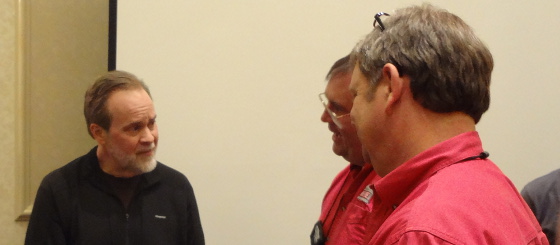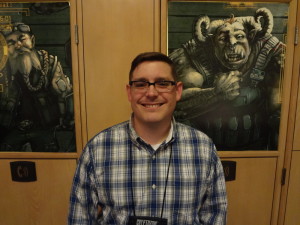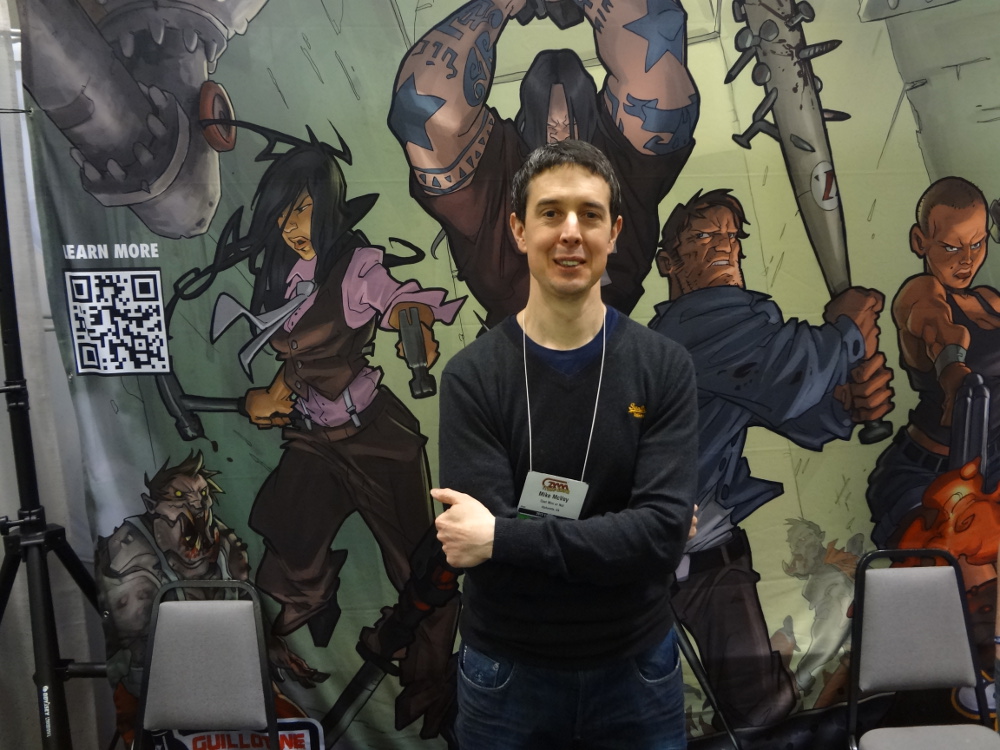GTS Seminar: Building a Better Manager
Having written about David Wallace’s Competitive Edge seminar at the 2012 GTS and transcribed his debate about Online Retailing with Jon Huston from Troll and Toad from later at the same show, I had high expectations when I went to Wallace’s Building a Better Manager two-hour retail seminar on Monday, March 18. Wallace didn’t disappoint and even brought another guest speaker with him in the form of Mike Brodeur, whom Wallace had promoted to General Manager overseeing his four Midwestern gaming stores. Wallace prefaced his seminar by pointing out that it’s one of the most difficult talks he’s worked on, due in part to the topic being such a “vague notion.” Before getting into the heart of his talk, Wallace also mentioned that he recently had to let go of one of a longtime employee and manager, but said that he owes the employee, “a debt of gratitude. He forced me to become better at management.”
What is Management
What is management, Wallace asked the crowd and waited as retailers slowly began to respond. He clarified, “If management is good for the company, why?” There were scattered answers that a manager is involved in teaching, coaching, and supervising. Wallace agreed that in general, management is confused with supervision. But Wallace pointed out that a supervisor of a plant is not supposed to change anything. He or she is to maintain the plant and keep its production going.
Wallace: Management IS Change
Instead Wallace proposed that management is change and further defined management as continuous improvement. Do we have different expectations for employees in their first week on the job and ones who have been working for several years? We expect employees to improve with experience, Wallace pointed out, before mentioning visiting stores where nothing has changed in five years. Getting employees to do the bare minimum is not management, but instead treading water.
He then brought up retailers spending 40, 60, or even 80 hours working their stores, cleaning, ringing customers up, handling product and finances, and dealing with employees. This is not actual management according to Wallace. The mechanics of running retail are just job skills, Wallace said, but “who’s managing when you’re busy working your store?” Wallace acknowledged that many retailers also work their own stores, but they must find time to manage them in order to improve.
If you don’t do it… it doesn’t get done.
“Management is not natural. It’s unnatural,” Wallace opined. It has to come from a person imposing his or her will and creating the change. He warned the attending retailers, “If you don’t do it – and it doesn’t get outsourced or delegated – it doesn’t get done.” Retailers wishing that they had more attractive displays or better in-store play for customers will do just that, wish. Management is getting those changes made and it’s not easy. Wallace also advised retailers not to bite off more than they can chew when it comes to making changes. Instead, they should pick one or two things to improve on at a time.
When Management is About People…
Wallace is adamant that friendship cannot be used as a substitute for management, nor should an effective manager be swayed by familial ties. Five years ago Wallace fired his General Manager, his brother, during a dark period when his company was saddled with debt and facing bankruptcy. Within a short period of time, Wallace says, he was “debt free, back in [the] black.” Wallace was clear in his advice to retailers intent on implementing change: “If you have someone who refuses to go along, just get rid of him.” In the long run, being able to achieve continuous improvements is worth the loss.
Wallace, who at one point had nine gaming stores but is now back down to four, also brought up interpersonal and communication skills as necessary to an effective manager. Knowing his audience well, Wallace smiled and said, “I’m going to guess that a few of you play World of Warcraft?” He compared employees’ love of feedback on their job performances to gaining points in the Fishing skill. We all love to see immediate feedback on our improvement. Brodeur agreed, but framed negative management as hearing “the Imperial March” when a manager walks in the room and employees dreading being “Force Choked” by their management. Brodeur’s Star Wars references didn’t stop there. For Brodeur, the allure of management by authority is akin to the Dark Side, brutal and expedient. Instead, Brodeur says managers should be patient and cultivate their employees much as Obi-Won and the Jedi Council would do with their padawans. It can be hard for managers to resist this “seduction of authority”, Brodeur admitted, but ultimately if they want to invest their employees in the company, they must. It’s the difference between a manager telling an employee to empty the trash, compared to one who asks the employee “What should you be doing now, John?” The nurtured employees begin to suggest and make their own improvements.
The Effects of Wallace’s Changes in Management
Wallace’s sales are “going up, up, up” and his business is enjoying 20% growth. Now his employee “turnover is next to nothing” at his Fantasy Shop Comics & Games stores in Saint Louis, Missouri. There have been other benefits as well. Mike Brodeur chimed in to point out that management meetings “used to be a courthouse; now they’re a classroom.” Wallace echoed the sentiment, saying that “meetings have become a joy for him.”
“The only thing I do well is learn from my mistakes,” Wallace said with no trace of irony. After 32 years in the business he is still learning, but his success has also enabled him to live more on his own terms. While Wallace and wife Kelli spend most of the year in Colorado Springs, they enjoy traveling around the country. David Wallace plays World of Warcraft when he wants to and was pleased to say that he doesn’t have to have a phone.



Pingback:GAMA Trade Show: Customer Service Seminar | Craven Games: In-Depth Tabletop Games and LARPing Coverage